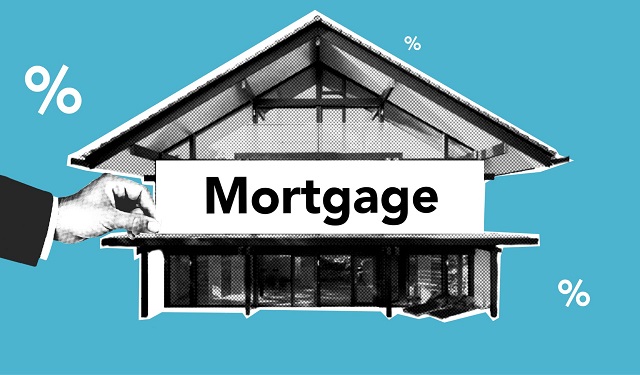Last updated Mar. 27, 2025 by Charles Zemub
Retirement is a significant milestone, marking the culmination of years of hard work and the beginning of a new chapter focused on relaxation and enjoyment. However, the transition from a paycheck to living off savings and fixed income can be challenging if not adequately planned. Financial stability in retirement is crucial to ensure you can enjoy these golden years without the stress of monetary concerns. Avoiding the risk of going broke in retirement requires a well-thought-out strategy, disciplined saving, and responsible spending. This article provides insight into effective planning and management tips to secure your financial future during retirement.
Understanding the Risks
One of the primary reasons retirees face financial difficulties is underestimating how long their retirement might last. With increasing life expectancies, retirement could last 20, 30, or even more years, significantly stretching assets over time. Additionally, factors such as inflation, rising healthcare costs, and unexpected expenses can rapidly deplete savings if not planned for appropriately.
Key Considerations
-
Longevity Risks: With advancements in healthcare, people are living longer. This means your savings need to stretch further.
-
Healthcare Costs: Medical expenses tend to rise with age, and Medicare may not cover all emergency or long-term care expenses.
- Inflation: Over time, inflation erodes purchasing power, making it crucial to have an investment strategy that at least keeps pace with inflation.
Steps to Secure Your Retirement
1. Start Early and Save Regularly
The sooner you begin saving for retirement, the more you can leverage the power of compound interest. Regular, disciplined saving helps accumulate a sufficient nest egg over time. Even modest, consistent contributions can grow significantly over several decades.
Recommendations:
- Contribute to employer-sponsored retirement plans, such as a 401(k), especially if they offer matching contributions.
- Consider proportionately increasing your retirement savings as your income grows.
2. Develop a Detailed Retirement Plan
A detailed retirement plan tailored to your lifestyle and financial goals is essential. This plan should assess all anticipated income sources, estimated expenditures, and timing of these cash flows.
Considerations:
- Factor in fixed expenses such as housing, utilities, and insurance.
- Include discretionary spending for travel, hobbies, and entertainment.
3. Diversify Your Investments
Diversifying your investment portfolio helps mitigate risks. A well-balanced mix between stocks, bonds, and other asset classes can provide growth potential while offering some protection against market volatility.
Strategies:
- Reallocate assets as you age, moving towards more conservative investments as retirement approaches.
- Consult with a financial advisor to tailor a diversified portfolio that aligns with your risk tolerance and time horizon.
4. Delay Social Security Benefits
Delaying the initiation of Social Security benefits increases your monthly payments. While you can begin claiming benefits at age 62, waiting until your full retirement age or even 70 maximizes those payments.
Tips:
- Carefully calculate the break-even age to determine the best time to start receiving Social Security.
- Consider spousal benefits and survivor benefits when making your decision.
5. Manage Healthcare Costs
Medical expenses can quickly consume a significant portion of a retiree’s budget. Identifying ways to manage these costs is crucial to prevent financial strain.
Suggestions:
- Review Medicare options annually and consider supplemental insurance to cover gaps.
- Take advantage of Health Savings Accounts (HSAs) if available before retirement.
6. Minimize Debt
Entering retirement with as little debt as possible frees up resources for other expenses. Pay off high-interest loans, credit cards, and mortgages before leaving the workforce.
Steps:
- Prioritize and accelerate payments on high-interest debts.
- Avoid taking on new debts close to retirement.
Balanced Budgeting
Develop a budget and stick to it. Monitor your spending to avoid depleting savings too quickly. Live within your means to ensure your assets last throughout retirement.
Techniques:
- Separate needs from wants, prioritizing essential expenses.
- Set monthly spending limits and track expenses to stay on budget.
Emergency Fund
Maintain an emergency fund even during retirement to cover unexpected expenses, such as home repairs or medical emergencies, without invading your retirement funds.
Guidelines:
- Aim to have at least 6-12 months of living expenses in an easily accessible account.
- Regularly replenish the fund as needed.
✓ Short Answer
To avoid going broke in retirement, start saving early, create a detailed retirement plan, and diversify your investments. Delay Social Security benefits to increase monthly income, manage healthcare costs efficiently, and eliminate debt before retiring. Adopting a disciplined approach to budgeting and monitoring expenses will help stretch savings across your retirement years. Consider financial advice to tailor a retirement strategy to your specific needs and risks.
FAQs
1. What is the recommended percentage of income to save for retirement?
Financial experts often recommend saving 10-15% of your income specifically for retirement. However, starting earlier or aiming for higher contributions can significantly benefit future financial security.
2. How can I estimate my expenses during retirement?
Make a comprehensive list of all your expected living expenses, accounting for inflation. Consider existing debt, projected medical expenses, desired lifestyle, and any planned travel or hobbies.
3. Should I continue working during retirement?
Working part-time can supplement your income, keeping you engaged and providing financial benefits. Decide based on your capabilities, interests, and the financial gap you need to bridge.
4. How can I ensure my savings keep pace with inflation?
Inflation-protected securities, like Treasury Inflation-Protected Securities (TIPS), can be part of your investment strategy to guard against inflation.
5. Can I rely entirely on Social Security?
Social Security was never designed to be the sole source of retirement income. It’s important to have diverse income sources, including savings and investment returns.
6. What are effective strategies to manage taxes during retirement?
Consider the tax implications of withdrawals from retirement accounts. Strategies may include Roth conversions, timing of withdrawals, and tax-efficient withdrawal sequences. Consulting a tax advisor can optimize these strategies.
7. How frequently should I review my retirement plan?
Review your retirement strategy annually or after significant life events. Adjust the plan as needed to stay aligned with your financial goals.
8. Is it necessary to downsize in retirement?
While not necessary, downsizing can lower housing-related costs and free up resources for other expenses. Evaluate your health, lifestyle preferences, and financial situation to make this decision.
By following these guidelines and maintaining informed decision-making, you can significantly reduce the risk of depleting your financial resources during retirement.



